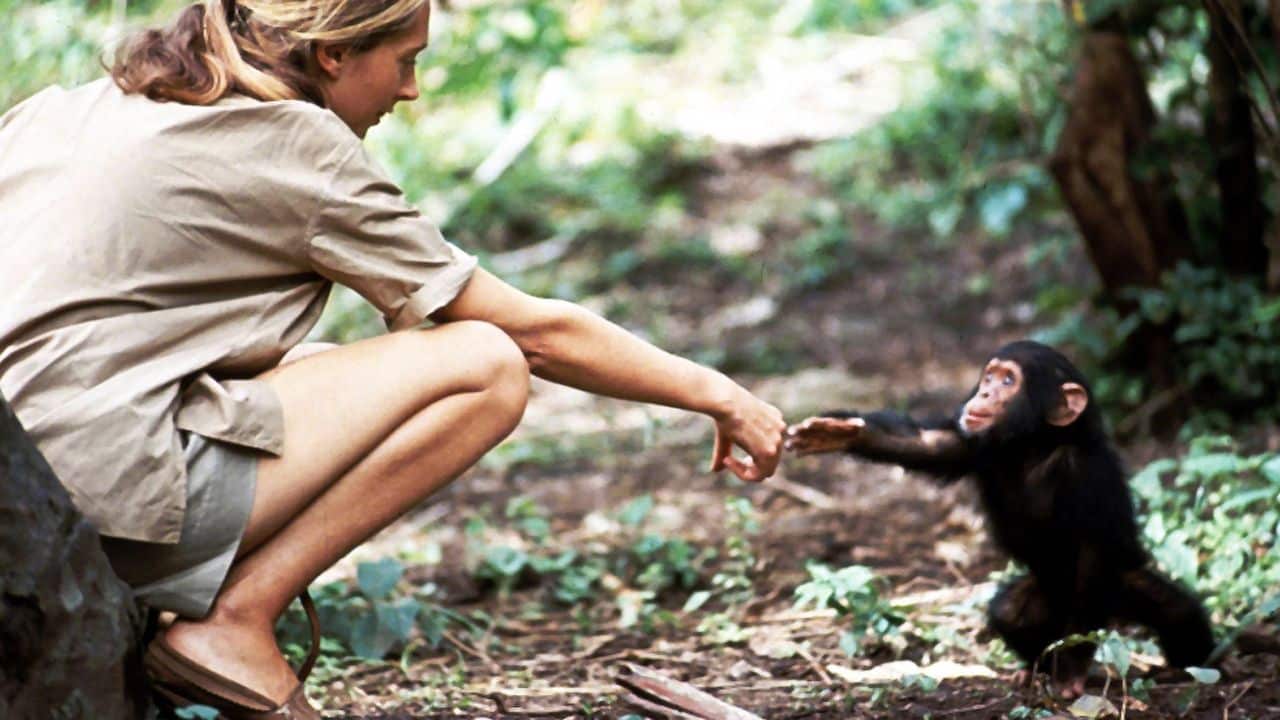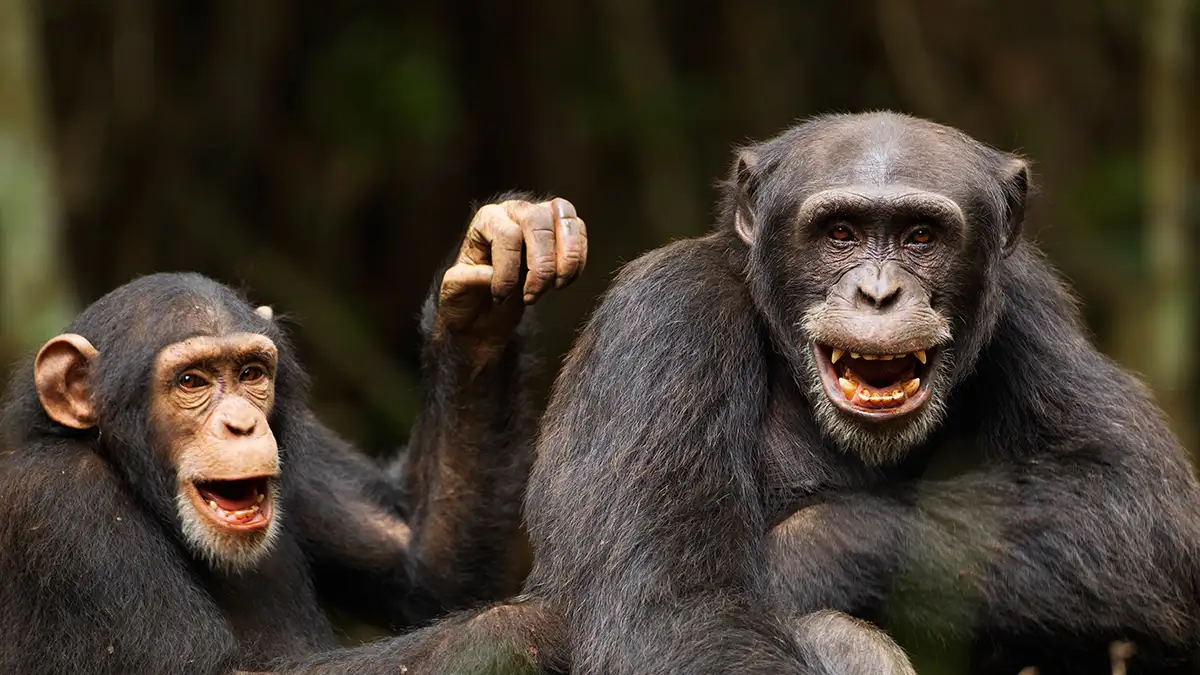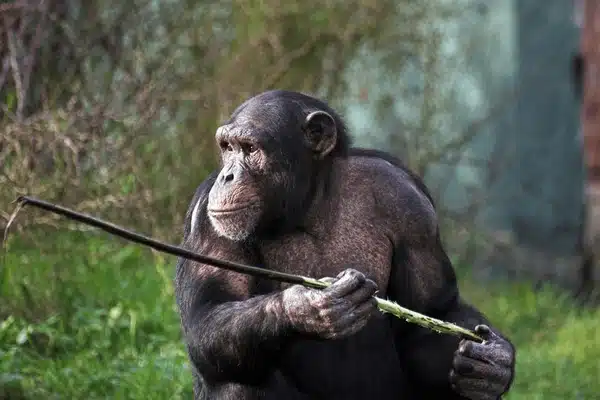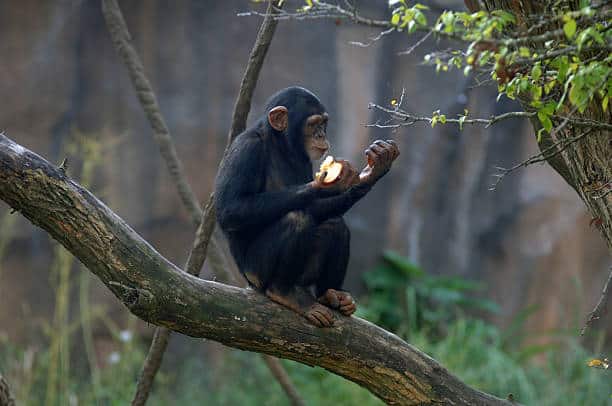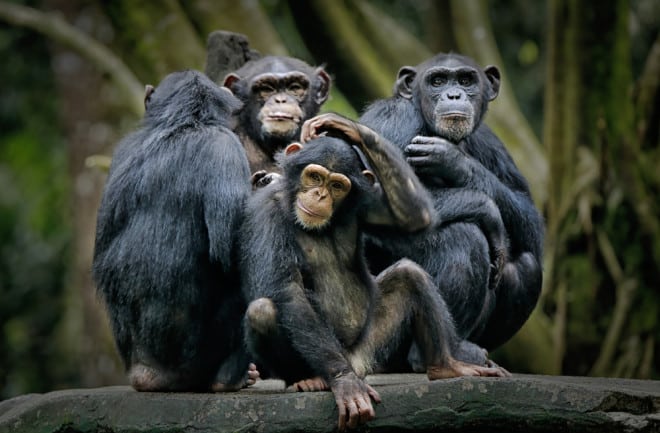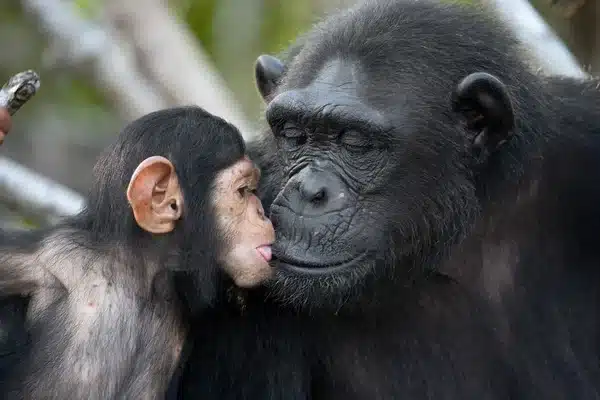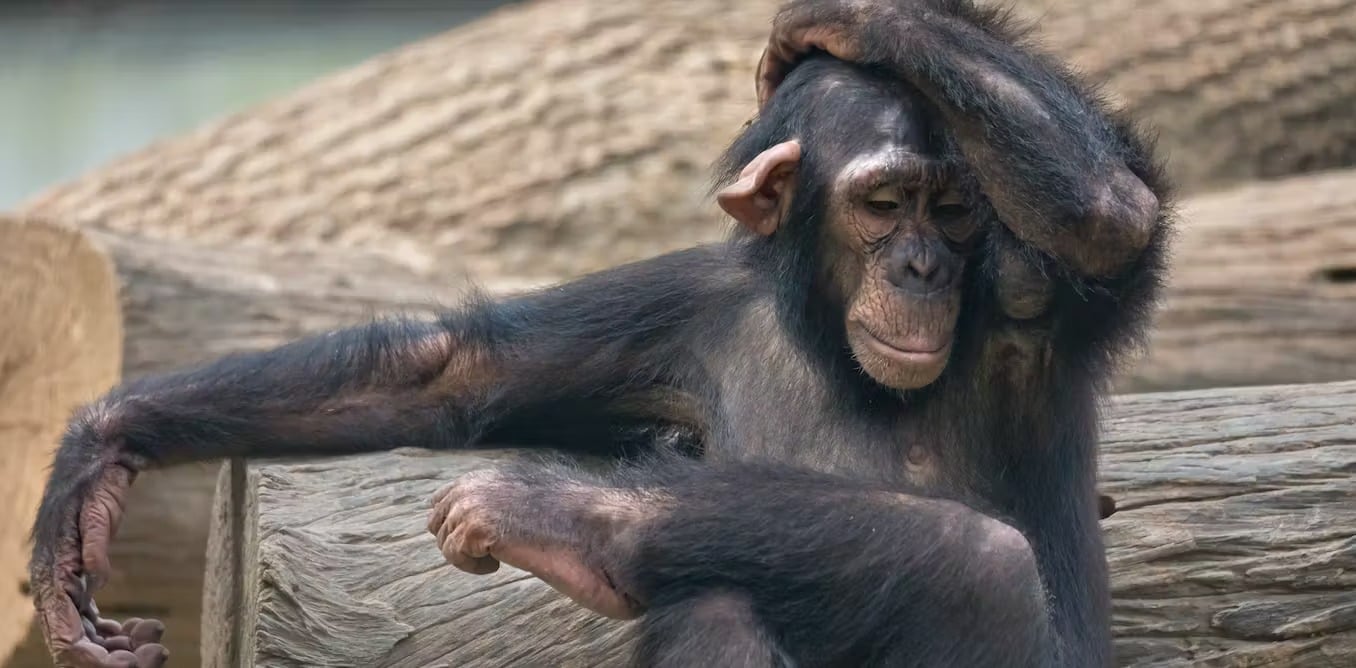Are you fascinated by the recent monkey videos you watched online? And those videos left you wondering about the striking similarity between monkeys and humans.
Well, you are not alone! Monkeys, indeed, share a resemblance to humans, both physically and mentally.
If you wonder about these facts being monkey jokes for kids, think again! Studies show that chimpanzees are the species closest to humans.
Today, we will delve into the world of monkeys and connect the dots between our mutual ancestors. Join us in the deep forests to learn about our animal relatives.
Chimpanzees: The Closest Monkeys to Humans
According to recent research conducted in American labs, scientists found a 98.8% match in the DNA of humans and monkeys. Yes! You heard that right. Chimps and humans are close relatives.
Charles Darwin’s claims on the law of evolution make more sense now than ever.
To be precise, chimpanzees are apes and not monkeys. However, their lives give us a glimpse into our ancestral past. Moving into the deep forests to study their behavior reveals similar traits to humans.
Their complex social structure, eating habits, parental traits, thinking abilities, and lifestyle are exactly like those of humans. Chimps also surprise us with their emotional intelligence and cognitive thinking.
It seems that the deeper we look, the deeper our connection grows. We can’t help but delve deeper into exploring chimpanzees as our nearest wild friends.
Seven Similarities Between Humans and Chimpanzees
It is amusing to think that chimpanzees and humans share the same ancestors. Even though we belong to the same family of ancestors, evolution has left a few signs of differences.
We guess that is how nature works its miracles.
Therefore, let’s dig into understanding this unique connection closely without further delay.
1. Facial Expression
Chimpanzees smile a lot! Yes, you heard that right! For a very long time, humans believed that laughing, smiling, or smirking are our uniqueness. However, after years of observation and close studies, scientists differ from that thought.
Our closest relatives often sit and smile silently in the wilderness. Young children are the ones who laugh out loud while having fun with their friends. Their facial expressions and sounds of laughter also vary with changing situations.
Therefore, we can say that positive emotions come naturally to both humans and chimps. On your next trip to the zoo, try to observe the facial expressions of chimps. You might catch one smiling at you!
2. Tool Usage
Monkeys and humans share another similarity in their tool usage. But how is that possible? Humans have gained centuries of practice to learn using tools. The extraction of metals, shaping them into sharp blades, and their unique usage.
But how can wild chimpanzees perform similar tactics in the wild?
Well, the answer lies in their intellect to carve tools like humans. Instead of metals, chimps use branches and stones. These apes can also sharpen their tools with their teeth and nails. After all, what is better than their natural strength?
Chimpanzees use their self-made tools to catch fish and crack nuts to have a nutritious feast.
3. Love for Food
Chimpanzees have a similar fondness for food as humans. Researchers and wildlife scientists say that, like humans, chimps love sharing their food with friends and families.
Monkeys are known to love fruits and flowers as part of their diet. However, chimpanzees are omnivorous by nature. Their diet varies widely, from seasonal fruits, nuts, and occasionally birds to small insect meat.
Studies have also highlighted that chimpanzees like cooked food better than the taste of raw vegetables. We believe these signs are enough to draw a similarity between our mutual love for food.
4. Playfulness and Curiosity
Similar to humans, chimpanzees love playflying with their friends. Younger ones enjoy their leisure time jumping and swinging from trees, exploring new fruits, mimicking other species, playing in the water, and irritating their parents.
However, chimps become sporty as they grow. Wildlife observers often notice their maturity through changing playmates, becoming responsible, finding partners, and becoming competitive.
Speaking of curiosity, Chimpanzees are always in search of delicious fruits. Therefore, most swing around trees to discover foods that soothe their taste buds.
5. Sense of Morality and Conviction
Chimpanzees survive in the wild with one leader. It is often an old male ape who protects the group from any internal fights and wrongdoings.
Wildlife researchers claim to witness sharing and caring traits, mostly towards children. These beautiful and wild monkeys express their emotions and morals through their behavior.
For example, harming a kid in a fight is highly defended, and sharing food with the weakest links in the group is an undeniable duty.
6. Awareness of Thinking
Where do you think the decision-making capabilities come from in monkeys? Humans’ supremacy to believe that we are the only species to think is certainly wrong! Chimpanzees can think and are aware of their cognitive awareness.
These traits of our ape friends bring them one more step closer to us. The ability to think inspires them to take action and support a primitive life in the wilderness.
7. Memory and Problem-Solving Skills
Did you know that chimpanzees are smart and have better memories than humans? Well, the information might be surprising to most, but we can not alter the truth!
Researchers from Japan have witnessed a baby chimp’s ability to remember numerics and images better than a 5-year-old human! Chimpanzees can also learn images and memories better than humans. Unlike humans, a chimp’s capability only grows with age.
Summing It Up
Overall, the beautiful wild chimpanzees are the species closest to humans.
Humans share a lot of physical, mental, and social traits with apes. Even though we look different and live different lifestyles, our base remains the same.
Starting from socializing skills, thought processes, and familial hierarchy to eating habits and communication tactics. After all, scientific proof of DNA reports cannot lie!
What more similarities do you witness between chimpanzees and humans? Comment below and share your observations with us!


